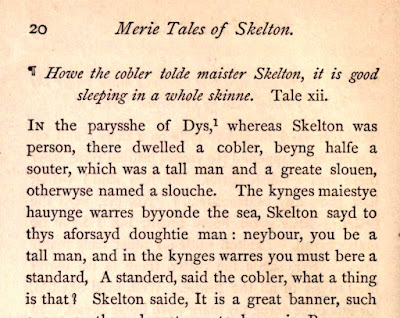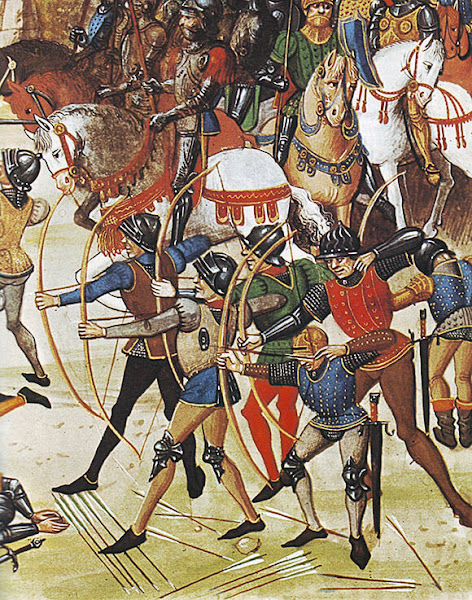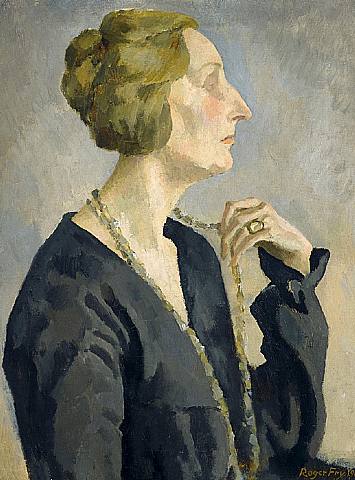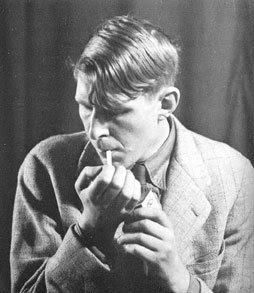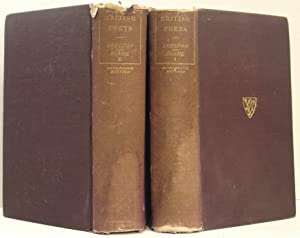The Island of Doctor Death and Other Stories and Other Stories. No, it's not a misprint. Recently I bought a rather battered first edition copy of Gene Wolfe's debut collection of short stories and novellas from Hard-to-Find Books in Auckland, one of the few local bookshops which still maintains a healthy stock of old SF paperbacks.
Admittedly it's not really a thing of beauty. That cover image, by Don Maitz, is quite accurate to the story it illustrates, but seems otherwise almost calculated not to appeal. The paper inside is brittle and the print miniscule. But the stories themselves are breathtaking!
One of the incidental characters in "Tracking Story" remarks to its unnamed protagonist:
You know nothing. You are like a child who has wandered by accident into a theater half a minute before the final curtain. You see people moving around, some masked; you hear music, observe actions you do not understand. But you do not know if the play is a tragedy or a comedy, or even know whether those you see are the actors or the audience. [217]That seems as good a way as any of summing up Wolfe's approach to storytelling. We know nothing. Nothing we are told can be trusted. No narrator is reliable, no action not open to doubt. How, then, are his readers to make their way through this baffling labyrinth of signs?
Along with the untrustworthy or just plain ignorant narrator, Wolfe is addicted to the idea of the story within a story. In the Nebula-award nominated "Seven American Nights," for instance, much of the plot hinges on the Muslim hero's haunting of a Washington theatre where J. M. Barrie's supernatural play "Mary Rose" is being performed. The more you know about that play, the more sense Wolfe's own story will make to you.
The extraordinary "Eyeflash Miracles", another Nebula Award nominee for best novella, overlays the experiences of a blind child runaway with, on the one hand, The Wizard of Oz - on the other, the Hindu myth of Krishna and Vishnu.
The 'Soldier of the Mist' trilogy, possibly my favourite among all of his works (which I wrote about in an earlier blogpost here), is told by a brain-damaged soldier incapable of forming new memories, whose attention span lasts roughly one day. His account of the retreat of Xerxes' army from Classical Greece after their defeat at the Battle of Plataea in 479 BCE is therefore compiled from a series of disjointed diary entries, forgotten almost as soon as they're written down.
Another thing his head injury has gifted him with is the ability to see and converse with the gods. Or rather, the capacity to believe that that is what he is doing. It sounds like a pretty strange plot premise. It is an extremely weird idea for a story, but somehow Wolfe succeeds in making it both compelling and poignant.
The Book of the New Sun is undoubtedly the work he's best known for - particularly the first volume of the tetralogy, Shadow of the Torturer. It is, in many ways, one of the most direct and straightforward of his stories, and yet even it seems, at times, almost calculated to confuse.
Why? Why did Wolfe refuse to tailor his works to the market? Why did he always insist on applying just one more turn to the screw? Not by accident did he issue a number of his limited edition novellas through an outfit called "The Pretentious Press".
One reason may have been, initially, because he had a full-time job as an industrial engineer for most of his working life, from the mid-1950s until 1984, when he retired to become a full-time writer. In other words, he didn't have to make continuous sales to the pulps for a living. He was, instead, free to experiment.
For the most part, though, it must have been just because he had that sort of mind. From the very beginning his work seemed more in tune with contemporary tricksters and game-players such as Barthelme and Borges, Cortázar and Calvino, than Sci-fi gurus such as Asimov and Clarke.
Even his late sword-and-sorcery epic The Wizard Knight goes through an almost unbelievably convoluted set of plot pathways before reaching its denouement. Often, as you read him, you feel that this time he's gone too far: this time the weirdness has finally flipped over into complete incomprehensibility. But no, every time he pulls it off. You may not end up liking the result, but you can't deny the courage of a writer who literally doesn't care if you get it or not.
Caviare to the general? To some extent, yes. But not nearly as much as one might think at first sight. That short story collection I started with, The Island of Doctor Death and Other Stories and Other Stories, is structured around a set of three stories (subsequently republished, with a new story, "Death of the Island Doctor", as The Wolfe Archipelago):
- "The Island of Doctor Death and Other Stories" (1970)
- "The Death of Dr. Island" (1973)
- "The Doctor of Death Island" (1978)
What marks out that story - all of his stories - from those of other postmodern fabulists is the profound compassion and empathy at the heart of them. Blind and crippled children, brain-damaged adults - these are his narrators of choice. To some extent his jokiness may have served as a screen against too facile a descent into sentimentality. Instead, it's the sheer innate intelligence behind them which makes his more terrifying and violent stories tolerable.
His work is a miracle. Given its intensity, it's perhaps best taken in small doses. However, if you haven't yet read any of it, you owe it to yourself to do so as soon as possible. It's not for nothing that Ursula Le Guin hailed him as "our Melville". He has something of Melville's scope and thematic range - something too of Melville's deep, abiding strangeness.
-
Novels:
- Operation Ares. A Berkley Science Fiction Novel. New York: Berkley Medallion Books, 1970.
- The Fifth Head of Cerberus: Three Novellas. 1972. London: Quartet Books, 1975.
- Peace. 1975. New English Library Paperbacks. London: Hodder & Stoughton Ltd., 1989.
- The Devil in a Forest. Ace Science Fiction. New York: Ace Books, 1976.
- The Book of the New Sun [Solar Cycle, 1] (1980-83)
- The Shadow of the Torturer. 1980. London: Arrow Books, 1983.
- The Claw of the Conciliator. 1981. London: Arrow Books, 1983.
- The Sword of the Lictor. 1982. London: Arrow Books, 1984.
- The Citadel of the Autarch. 1983. London: Arrow Books, 1983.
- Free Live Free. 1984. London: Arrow Books, 1986.
- Latro (1986-2006)
- Soldier of the Mist. 1986. An Orbit Book. London: Futura Publications, 1987.
- Soldier of Arete. 1989. New English Library, 1990.
- Soldier of Sidon. A Tor Book. New York: Tom Doherty Associates, 2006.
- The Urth of the New Sun. [Solar Cycle]. 1987. An Orbit Book. London: Futura Publications, 1988.
- There Are Doors. 1988. An Orbit Book. London: Futura Publications, 1990.
- Castleview. 1990. London: New English Library, 1991.
- Pandora, By Holly Hollander. 1990. London: New English Library, 1991.
- The Book of the Long Sun [Solar Cycle, 2] (1993-96)
- Litany of the Long Sun: Nightside the Long Sun and Lake of the Long Sun. 1993 & 1994. An Orb Edition. New York: Tom Doherty Associates, LLC, n.d.
- Epiphany of the Long Sun: Caldé of the Long Sun and Exodus from the Long Sun. 1994 & 1996. An Orb Edition. New York: Tom Doherty Associates, LLC, n.d.
- The Book of the Short Sun [Solar Cycle, 3] (1999-2001)
- On Blue’s Waters. The Book of the Short Sun, 1. 1999. New York: St. Martin’s Press, 2000.
- In Green’s Jungles. The Book of the Short Sun, 2. 2000. New York: St. Martin’s Press, 2001.
- Return to the Whorl. The Book of the Short Sun, 3. 2001. New York: St. Martin’s Press, 2002.
- The Wizard Knight. 2004. Gollancz. London: Orion Publishing Group, 2005.
- The Knight (2004)
- The Wizard (2004)
- Pirate Freedom (2007)
- An Evil Guest (2008)
- The Sorcerer's House (2010)
- Home Fires (2011)
- The Land Across (2013)
- The Smithe Series (2015-2020)
- A Borrowed Man. A Tor Book. New York: Tom Doherty Associates, 2015.
- Interlibrary Loan. 2020. A Tor Book. New York: Tom Doherty Associates, 2021.
- The Island of Doctor Death and Other Stories and Other Stories. New York: Pocket Books, 1980.
- Gene Wolfe's Book of Days. 1981. London: Arrow Books, 1985.
- The Wolfe Archipelago (1983)
- "Death of the Island Doctor" (1983)
- "The Island of Doctor Death and Other Stories" (1970)
- "The Death of Dr. Island" (1973)
- "The Doctor of Death Island" (1978)
- Plan(e)t Engineering (1984)
- Bibliomen (1984)
- Storeys from the Old Hotel (1988)
- Endangered Species. 1989. An Orbit Book. London: Futura Publications, 1990.
- Castle of Days (1992)
- Castle of the Otter
- Gene Wolfe's Book of Days
- The Young Wolfe (1992)
- Strange Travelers (2000)
- Innocents Aboard (2004)
- Starwater Strains: New Science Fiction Stories. A Tor Book. New York: Tom Doherty Associates, 2005.
- The Best of Gene Wolfe (2009)
- At the Point of Capricorn (1983)
- The Boy Who Hooked the Sun (1985)
- Empires of Foliage and Flower: A Tale From the Book of the Wonders of Urth and Sky (1987)
- The Arimaspian Legacy (1988)
- Slow Children at Play (1989)
- The Old Woman Whose Rolling Pin is the Sun (1991)
- The Case of the Vanishing Ghost (1991)
- The Grave Secret (1991)
- [with Neil Gaiman] A Walking Tour of the Shambles (2002)
- Talk of Mandrakes (2003)
- Christmas Inn (2005)
- Strange Birds (2006)
- Memorare (2008)
- The Castle of the Otter: Essays (1982)
- Letters Home (1991)
- Shadows of the New Sun: Essays (2007)
Story collections:
Chapbooks:
Non-fiction:

























